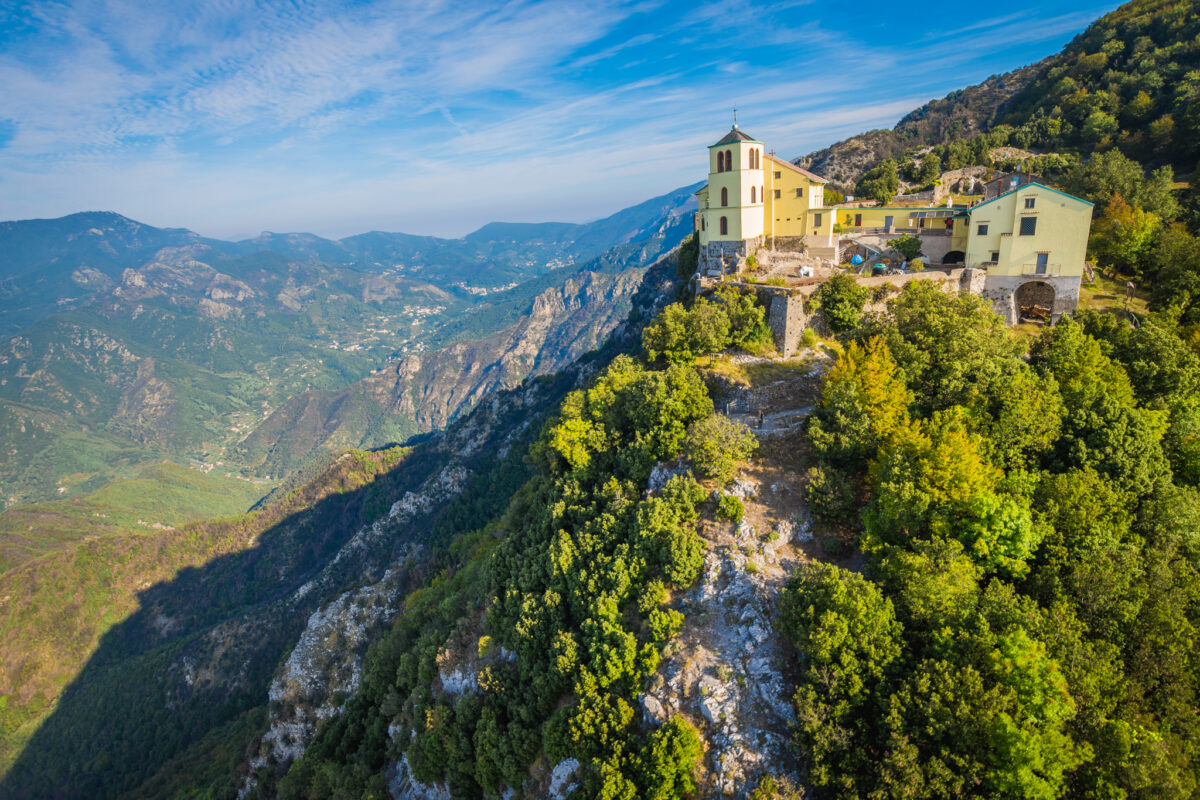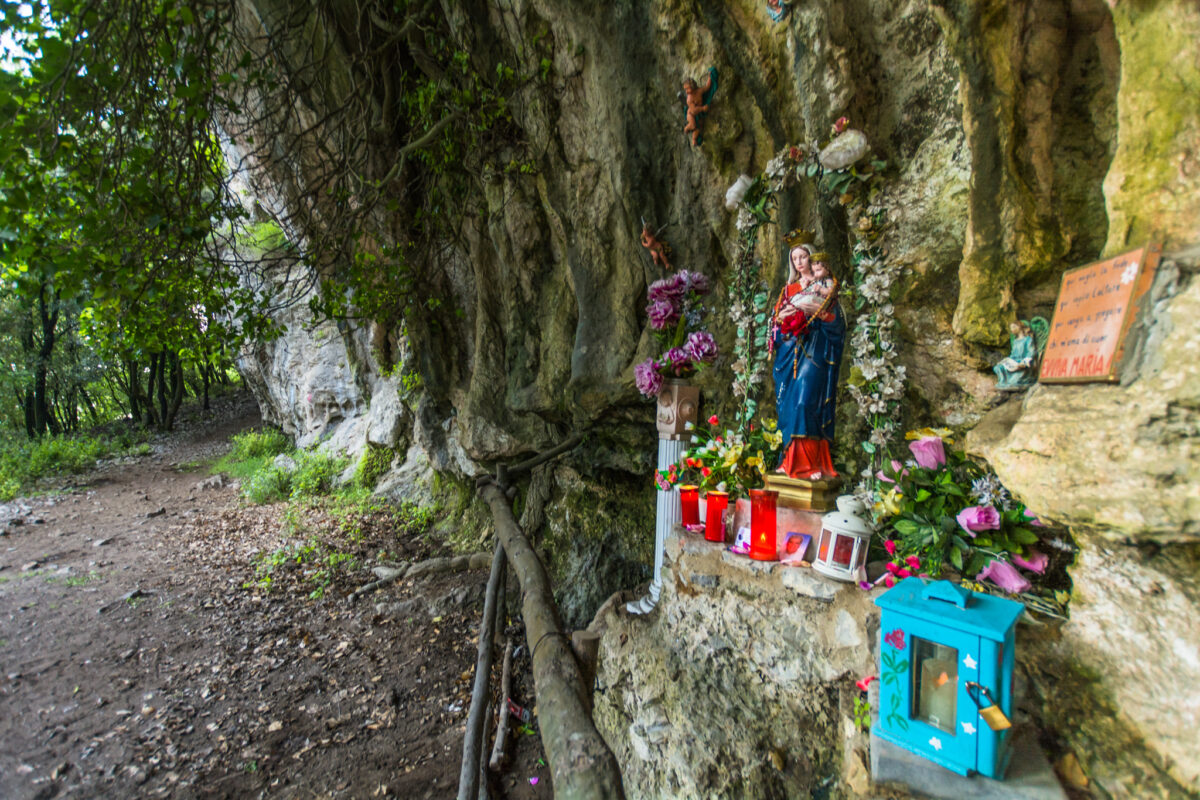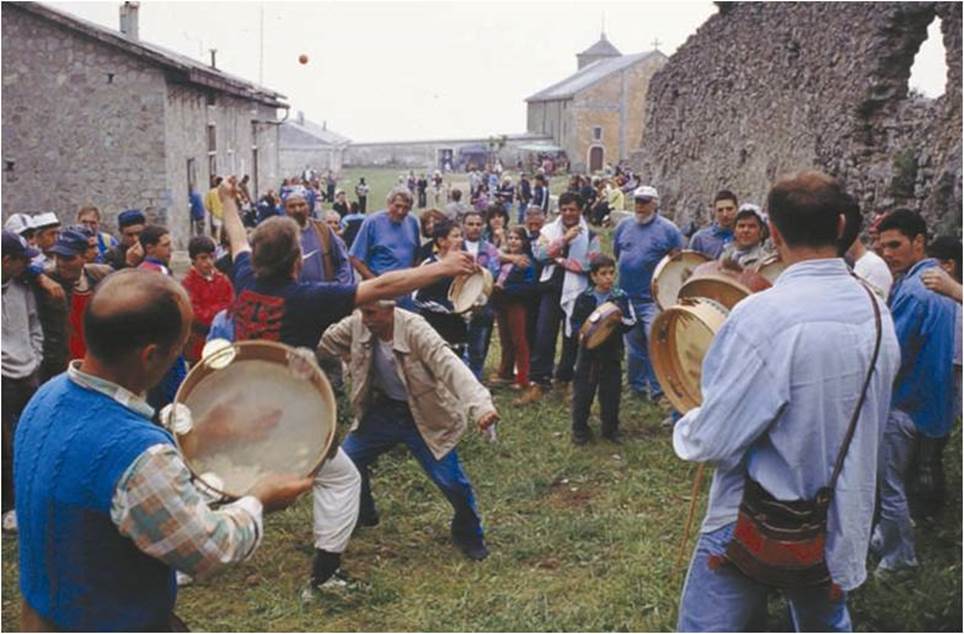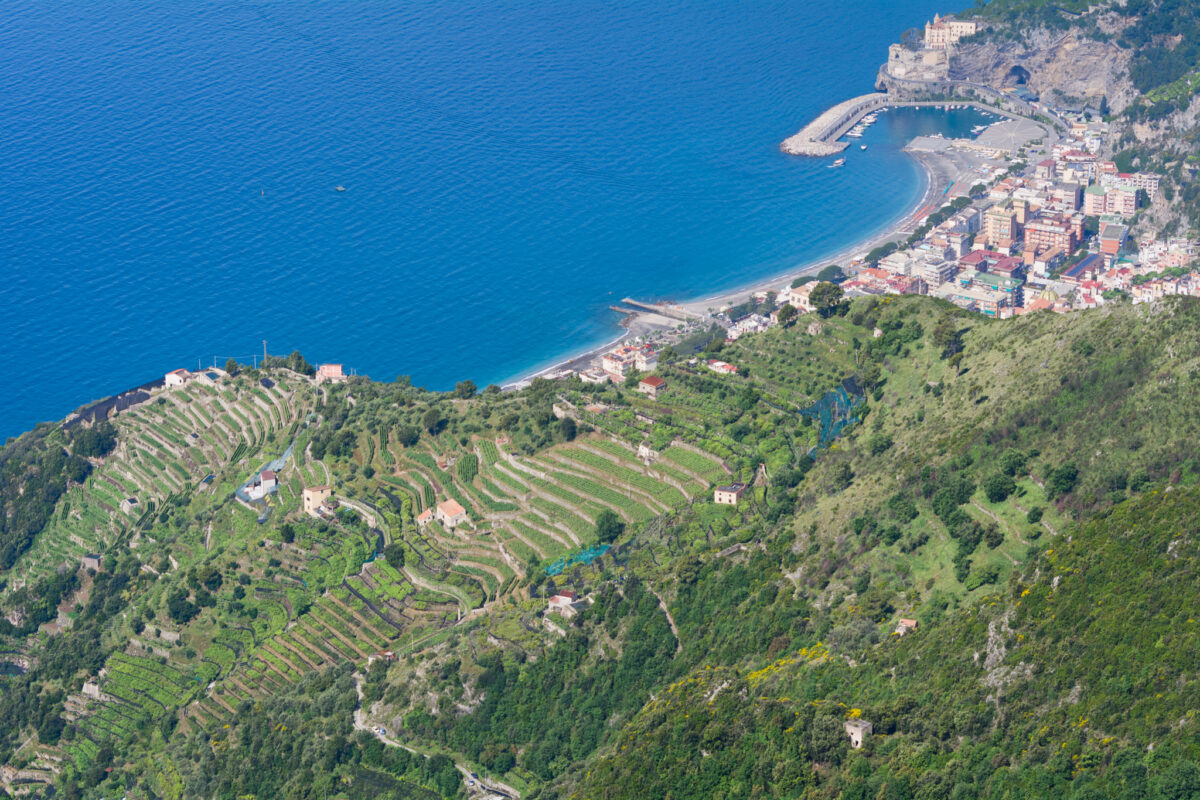The GreenHeritage Project selected 14 case studies to analyse the situation regarding the relationship between climate change and intangible cultural heritage in each of the project partner countries, namely Greece, Italy, Latvia and Spain. These are complemented by the analysis of 4 additional case studies, which aim to better understand the situation of climate change in other European countries and regions.
In this framework, we will now present CS9 “Festa della Madonna Avvocata” (Amalfi Coast, by CUEBC).
The feast of the Madonna Avvocata is one of the most heartfelt festivals and celebrations of the intangible heritage of the Amalfi Coast, which has also played an important role in the past in terms of awareness-raising processes of the local community in relation to the maintenance and management of the site’s traditional cultural landscape, including the ‘dry stone wall’ system.
This is a very ancient and complex ritual that originated in the late 15th century. It consists of a pilgrimage that takes place once a year, a procession and a final celebration.
The periodic pilgrimage, held on Pentecost Monday, renews the relationship between man and nature, which must be properly preserved, also through the intercession of Our Lady, who plays the role of ‘Advocate’, the figure ‘who intercedes’.
The pilgrims climb the slopes of Mount Falerzio in small groups or individually, starting from the villages of Maiori, Erchie, the ancient Benedictine Abbey of Cava de’ Tirreni, Albori, Tramonti, following the streams. They stop to pray at some ‘stations’, located on the ridges, then cross the uncultivated but not wild wood, the realm of shepherds, which seals another part of a hard journey of purification path towards the divinity. Finally, they arrive at the top of the mountain, at the sanctuary built over a cave, which hides a reservoir under its crypt. It is here that the ‘Madonna Advocate’ works to grant the faithful trust, health, prosperity, in one with the life cycle of water. The divinity, brought by the believers, shows itself and blesses the land from above the spring, the terracing system, the houses and villages, the sea: now the feast begins. People drink wine and limoncello, the famous local liqueur extracted from lemon peel; they eat a meal of produce from the land and sea, bread, cheese, salami and even anchovies marinated in lemon juice. The dance has the beating rhythm of the “tammorre” (leather drums), played by many men together. It is a dance performed mainly by men who ‘intertwine their legs’, reminiscent of the dances mimicking wrestling that are widespread in the southern Mediterranean basin. Above all, boys and children (today also girls) are invited to dance in order to one day become the future protagonists of the festival.
Before sunset, they return to the valley, following the ‘canal paths’ again: the group divides again, like water. The party continues, downstream, near the sea.
Despite a history of destruction and reconstruction, the pilgrimage to the Madonna Avvocata has always been a constant over the centuries because it embodies the values and perspectives of the entire Amalfi Coast community.
Interviews conducted as part of the GreenHeritage project demonstrated how climate change is directly affecting pilgrimages, processions and celebrations. This is not only due to the damaging effects of the heavy rains that cause the paths’ landslides, but also to the severe drought that deprives the springs and the large reservoir near the churches at the top of the mountain.
Moreover, climate change, combined with the abandonment of fields, leads to a progressive collapse of the terraced system of dry stone walls and destroys the ancient paths in many places, effectively blocking the ascent to the mountain. This entails the risk that pilgrims will no longer be able to climb to the Sanctuary of the Avvocata from the Maiori side. It is therefore necessary to aim for environmental sustainability, reducing air pollution; not altering the surface hydraulic system; taking care of the cultural landscape and crops; carefully maintaining them




